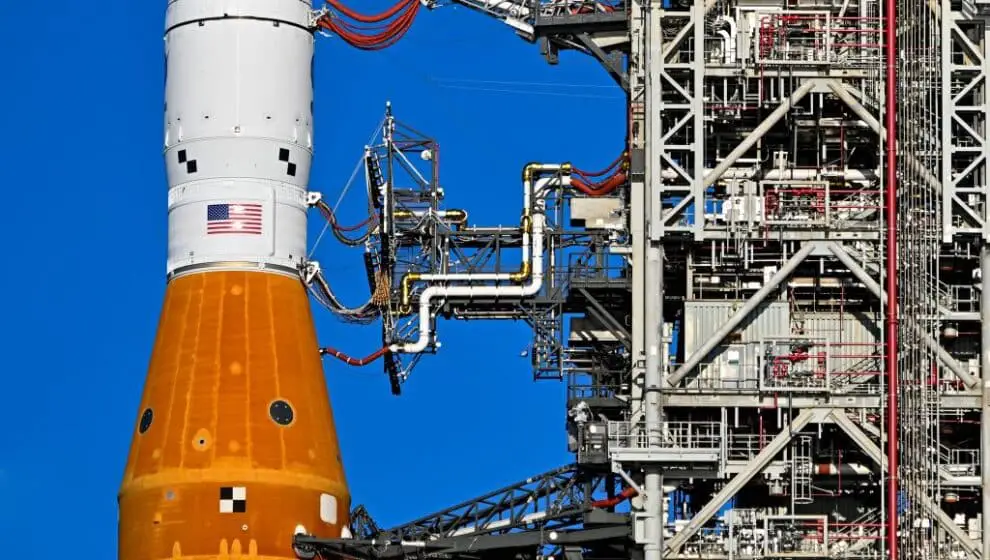Boeing has a lot weighing on the successful launch of NASA’s new moon rocket.
Key details
Boeing is one of NASA’s primary contractors for Artemis I, which attempted twice in the last weeks to launch into orbit around the moon. Its initial launch date of Monday, August 29 was scrubbed before delaying the takeoff again on Saturday, September 3, due to another engine leak.
The successful launch of the new Space Launch System (SLS) rocket could be a chance for Boeing to redeem itself following numerous delays and failures, The Wall Street Journal reports.
“The SLS is just another opportunity for us to show how well Boeing can do space. This vehicle can do something that no other vehicle can do, and we haven’t had a rocket like this in 50 years,” says Boeing VP John Shannon.
Why it’s important
As we reported last week, the delay was a sign of strength for NASA and Boeing and marked the agency’s dedication to safety and preparedness. For Boeing, though, the launch has additional significance as it is facing pressure to prove its strengths with a successful test launch of the SLS.
The test launch has already been bogged down by four years of delays, technical issues, and cost overruns. Two repeated failures on the pad are not major failures for Boeing but provide an additional public issue that it has had to deal with following other major failures.
“Three years ago, Boeing botched a test launch of its Starliner space capsule, sending it into the wrong orbit and failing to dock with the International Space Station. Subsequent technical problems delayed a do-over until a successful Starliner test launch earlier this year. The company has booked $767 million in charges related to that program over the past three years,” says The Wall Street Journal.
“A successful SLS launch would help Boeing restore its reputation as it competes for government contracts and engineering talent with startups.”
Boeing cannot mass produce the SLS rockets, unlike its rivals at SpaceX, which has launched 175 successful Falcon 9 launches in the past 12 years.
Backing up a bit
The Artemis program is the first rocket program run by the U.S. since the grounding of the last space shuttle in 2011. Artemis I’s mission is a 42-day trip to orbit the moon and stress test the SLS. Artemis II and Artemis III are scheduled to launch in 2024 and 2025, taking a crew of four astronauts to the moon for the first time since Apollo 17 in 1972.
NASA and Boeing will be working on repairing the leak and eyeing two new two-week launch windows. It hopes to launch either on September 23, or September 27. It may delay again until October 17.

